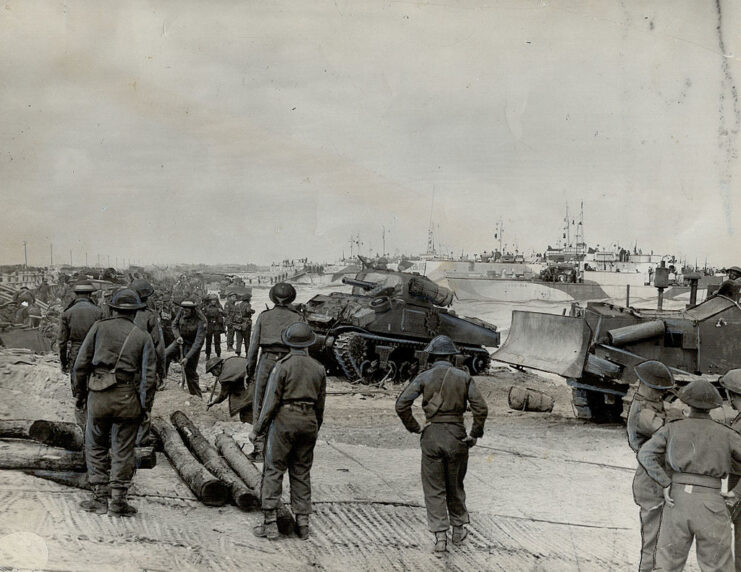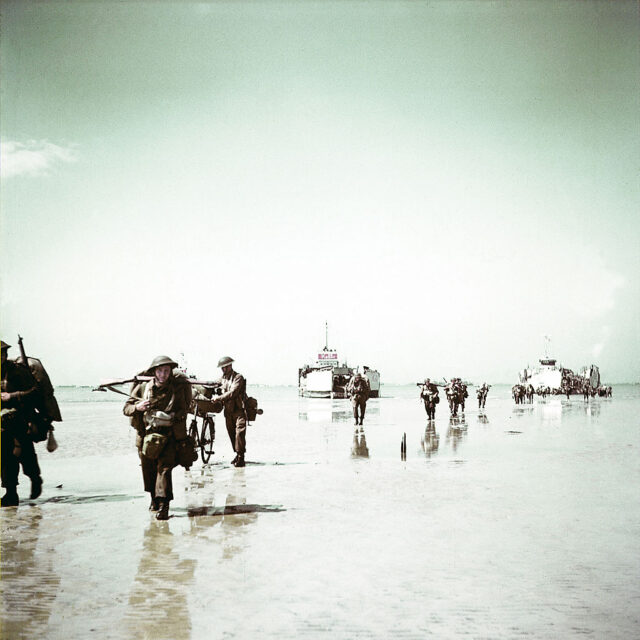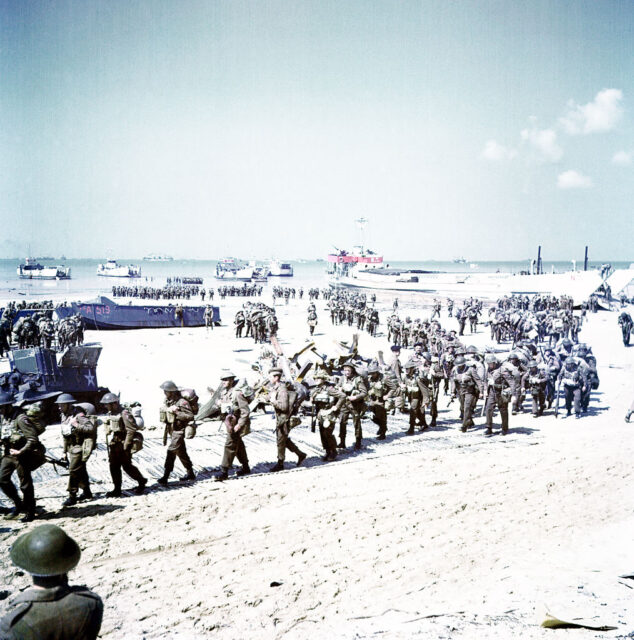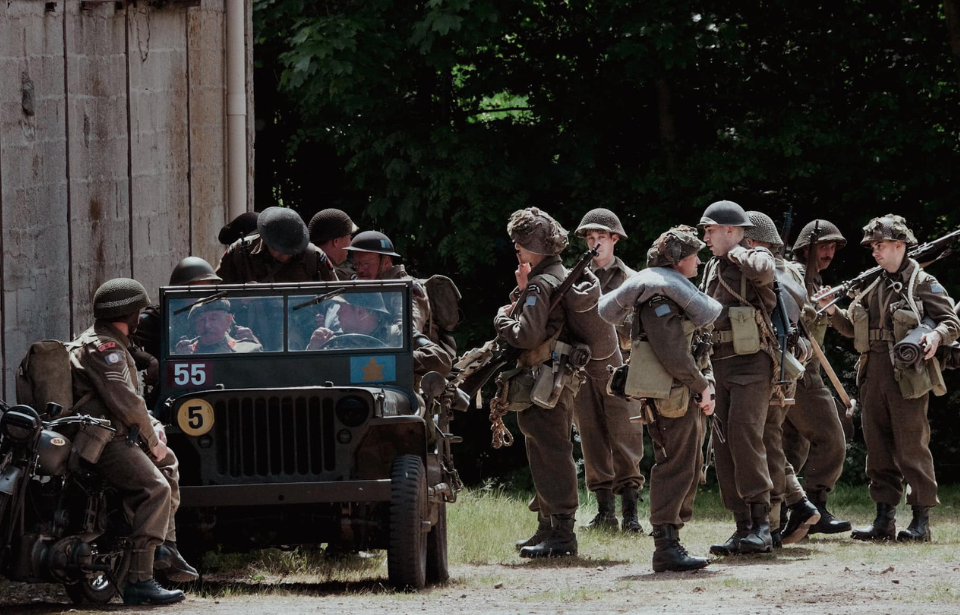A group of historians from Normandy have come together to produce a film highlighting the sacrifices made by Canadian troops before, during and after D-Day. Titled Little Black Devils – From Juno to Putot, the documentary follows the heroics of the Royal Winnipeg Rifles Regiment.

Little Black Devils – From Juno to Putot originated from the mind of the late Frederick Jeanne, who, until his death, revered the Canadians for their efforts to liberate France during the Second World War. His interest in the subject even led him to write Hold The Oak Line, which outlined the actions of the 7th Canadian Infantry Brigade.
Jeanne, other historians and employees at local museums, including filmmaker Julien Martin, agreed to work on the project. In an interview with CBC, Martin explains, “We said to each other, quite candidly, quite naively, ‘guys, it would be great if we made a film. It would be great to have something concrete about this unit, about these men.'”

The Royal Winnipeg Rifles Regiment – nicknamed the “Little Black Devils” – dates back to the 1880s. It served throughout the First World War as part of the Canadian Expeditionary Force, and three battalions were present in Europe during World War II.
The men of the Royal Winnipeg Rifles were part of the first wave of troops to land at Normandy on D-Day. Throughout Operation Overlord, they fought in numerous high-profile engagements, including the battles for Caen, Putot-en-Bessin and the Falaise Pocket. Following the liberation of France, the regiment participated in the North-West Europe Campaign, which saw them fight in the Battle of the Scheldt and aid the Allies as they made their way across the Rhine.
Today, they’re part of the 38 Canadian Brigade Group, 3rd Canadian Division, stationed out of Minto Armoury.

Once the team had the idea for their Royal Winnipeg Rifles documentary, they approached the management of the museums at which they worked, including the D-Day Experience Museum, in Normandy. They received partial funding from the institutions, and raised the rest of the money via Leetchi and a GoFundMe campaign.
With funding secured, they next had to ensure the film was as accurate to history as possible. “We don’t want approximations, or ‘close enough’, we really want it to be perfect,” Martin tells CBC. One of the ways they achieved this was by recruiting 98-year-old Jim Parks, a Canadian veteran who stormed Juno Beach.
The team also combined re-enactments with veteran and civilian accounts from the war.
Speaking with CBC, Royal Winnipeg Rifles Association Maj. Richard Desjardins says he hopes the documentary reminds Canadians of the sacrifices made by these veterans.
“I think it’s a great story for the average Canadian, to see what an impact one regiment had,” he shares. “The weather was unknown, the water was unknown, the defences were unknown, and these men were charging off a boat up a beach to liberate somebody from another country.
“So the level of appreciation is being paid back. I appreciate that they have not forgotten what these Canadians have done, what this regiment has done.”
More from us: Battle for Best Prom Entrance – Teens Arrive At High School Dance In WWII-Era Tank
Little Black Devils – From Juno to Putot will be released in time for the 80th anniversary of D-Day. Its team plans to donate the documentary to schools across Normandy, as well as to any Canadian schools that are interested.
